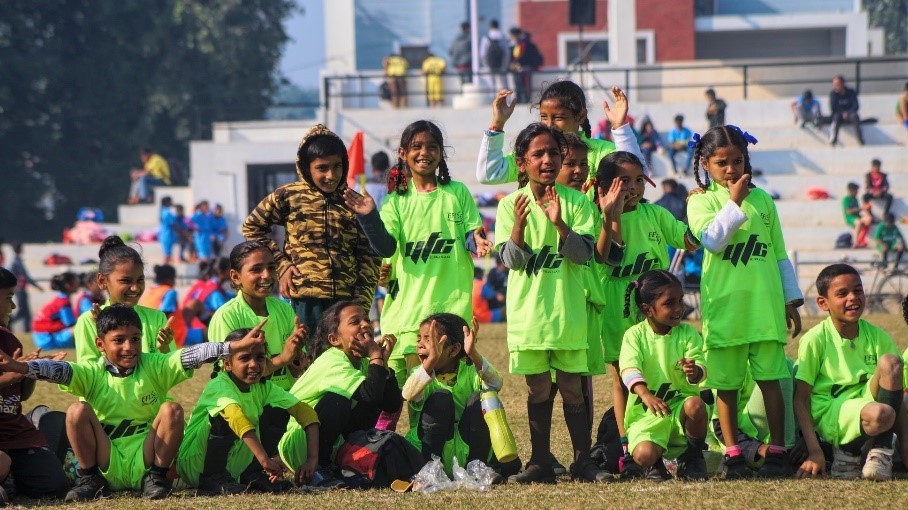By Chris Hoellriegl, MSc Development Studies
Sports have many faces. Apart from diversion or pleasure, sports can for instance be a ‘big business’ when considering an annual revenue of 715.1 M Euro of Barcelona FC alone in 2019/20. What many may not be directly aware of, is that sport plays an increasingly important role in versatile forms of development. Many big football clubs, for example, take up social responsibility and give back to communities by tackling gender inequality or social inclusion, amongst other issues. For instance, Barcelona FC or British clubs like Arsenal support vulnerable children and young people within communities in need through versatile sports initiatives all around the world. Hence, in what ways does sports contribute to development or, more generally, society?
Sports has indeed proven to have, according to Nelson Mandela, ´the power to unite people in a way that little else does.´ The contributions of sports range much further, as focusing on the small grassroots organisation Youth Football Club Rurka Kalan (YFC) in the North of India indicates. This organisation clearly shows the impact of sports at a community level. Founded in 2001 by a group of committed volunteers, the progressive community development initiative delivers football, kabaddi and wrestling sessions for boys and girls all over Punjab. The development initiative delivers something that is unprecedented within that area, along with something that empowers especially young people. Referring to Mandela’s words once again, ´it speaks to youth in a language they understand.´ Especially, the contribution to personal development bears repeating. Besides helping Punjabi children get active and healthy, participating in sports is associated with other major benefits including mental well-being and increased self-esteem. Team sport especially proves to be linked to better health outcomes based on the social nature of the participation, for instance. It allows the youth in Punjab to learn crucial life skills like resilience, team spirit or communication in a safe space and playful manner.
An example of how this may affect wider social contexts can be found when looking at the effects of sports on gender equality. Studies show that creating opportunities for young women to develop self-esteem, master new skills, and establish a sense of bodily integrity through sports programmes alters the general perception of women within society. Girls participation in the case of YFC has proven to be a successful medium to slowly crack old traditional role models that are especially prevalent in rural India. Empowered through sport, many girls now tend to speak up and even take on leadership roles within their communities.
However, the project not only focuses on promoting physical activity or personal development alone. It additionally integrates other broader objectives like intercultural exchange. YFC’s cross-border sports project in cooperation with Kick for Tolerance at the frontier between Pakistan and India exemplifies how sports involving children from both countries can ´provide a fertile ground for sowing the seeds of development and peace´ in a context where politics may have erected merely unsurmountable walls, as stated by Wilfried Lemke, Special Adviser to the Secretary-General on Sport for Development and Peace.
The real question is how to make sports contribute in more impactful, tangible ways.
To sum up, sport highly contributes to development, especially within communities as in the case of YFC. When Ban Ki-moon, UN Secretary-General, urged governments to integrate sport in development programmes and national development strategies, he outlined that ´the real question is how to make [sport] contribute in more impactful, tangible ways.´ When we find those impactful, tangible ways, sport may even hold the potential, as Nelson Mandela famously stated, ‘to change the world.’
Caption: One of YFC´s youth football teams cheering at their teammates (credit: Baljit Kumar, Youth Football Club Rurka Kalan)
